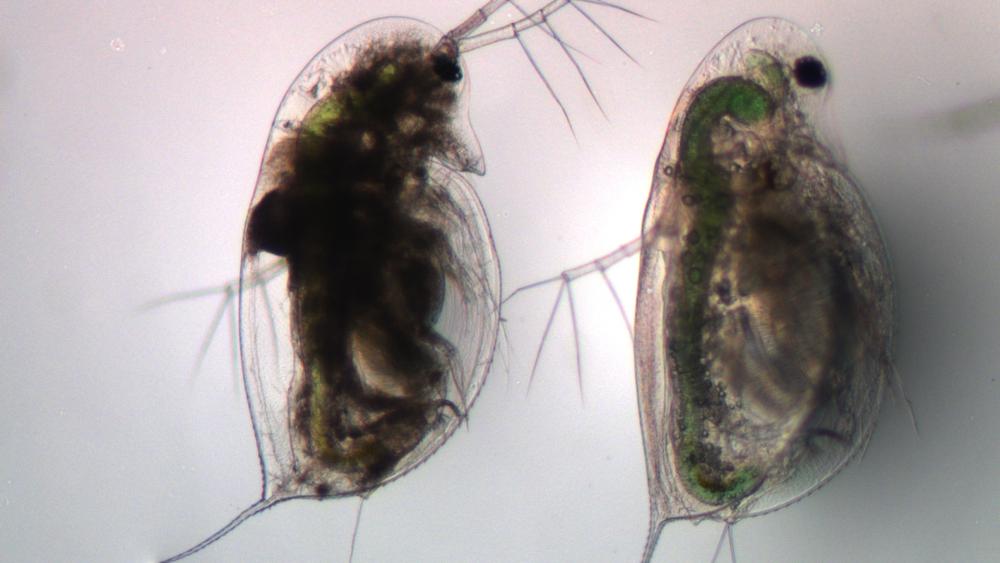
Contrasting Daphnia hosts: Profound parasitic infection (left-hand side) versus non-infected individuals (from D. longispina complex). The black regions within Daphnia reveal dense aggregations of parasitic spores caused by the yeast pathogen Metschnikowia bicuspidata. | Photo: Wolinska Lab
Parasites are nature's hidden champions: they control important physiological processes and behaviours of their hosts and thus regulate the dynamics of entire communities. The host metabolism can be affected by direct and indirect changes in food acquisition, digestion or energy balance.
In a meta-analysis of 68 studies on the effects of parasites on host consumption rate, IGB researchers showed that infected vertebrates and invertebrates eat on average about 25 percent less than their uninfected conspecifics. However, in almost one third of all cases parasitic infections increased host consumption rate, highlighting the context-dependent character of parasite effects.
Not only do the host animals eat less, but the variability in food intake is more pronounced
Parasitic infections also increased the variability of consumption rate by 25 percent. This means that parasitic infections can lead to unpredictable effects of host food intake. "This suggests that some infected hosts adapt their foraging and feeding behaviour to meet their food needs. A meta-analysis of variance can therefore help to uncover hidden effects of parasites and improve our understanding of biological processes," explained study leader Agata Mrugała.
The characteristics of the host animal also play a role: the consumption rate was particularly reduced in females. "This could be due to pregnant females often having difficulties to meet their high energy requirements when being infected," said co-author Jonathan Jeschke.
Important finding for experimental approaches with parasites
Within invertebrates, those species that were naturally infected with parasites showed a greater decrease in average consumption rate than those that were experimentally infected; the latter showed greater variability in food intake. "This is very important information for studies with parasites, so that the experimental design can be adjusted if necessary," explained co-author Justyna Wolinska.







